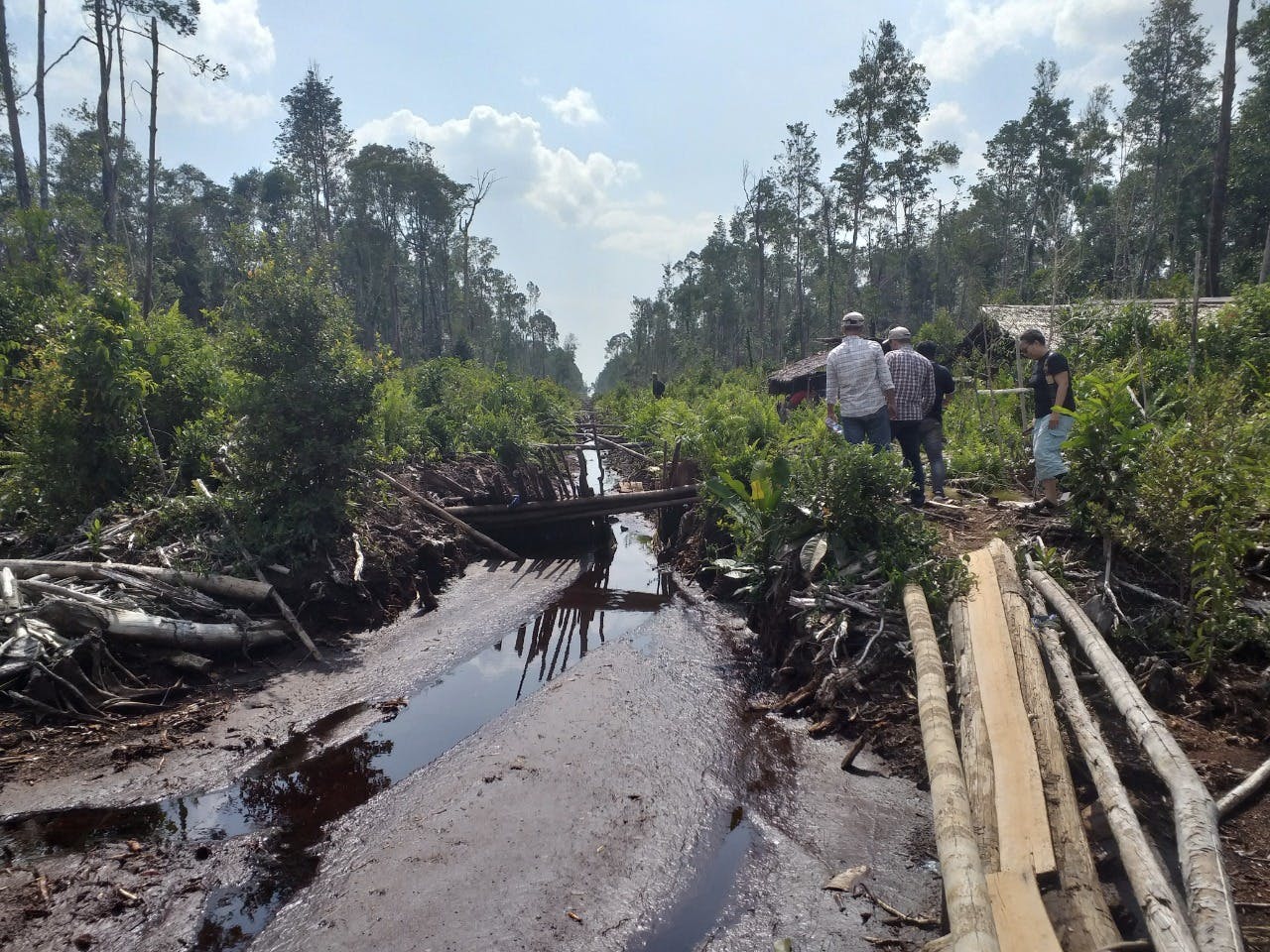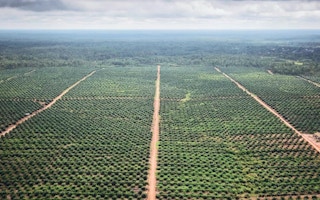One of Indonesia’s most controversial palm oil growers has embarked on a recovery plan to make amends for clearing rainforests by reforesting an area half the size of Singapore and supporting communities affected by its new no-deforestation commitment.
To continue reading, subscribe to Eco‑Business.
There's something for everyone. We offer a range of subscription plans.
- Access our stories and receive our Insights Weekly newsletter with the free EB Member plan.
- Unlock unlimited access to our content and archive with EB Circle.
- Publish your content with EB Premium.
KPN Plantation, known as Gama Plantation until 2019, said it will remediate 38,000 hectares of forest in Papua and West Kalimantan, provinces that had undergone mass deforestation between 2013-2018.
KPN’s chief operating officer, Hendri Saksti, said that the recovery plan roadmap, published on Tuesday, “reaffirmed our responsibility and commitment to remedy past mistakes.”
An investigation by Greenpeace in 2018 revealed that the Gama company, a group of plantation firms with common ownership, had cleared 21,500 ha of rainforest in Papua and West Kalimantan over the previous five years.
The campaign was targeted at Singapore-listed palm oil trader Wilmar International, which had been using Gama as a supplier which was in violation of its no deforestation, no peat, no exploitation (NDPE) policy, set in 2013. Greenpeace also exposed familiy ties between Wilmar and Gama.
As a result of the campaign, Wilmar cut off Gama from its supply chain in June 2018, as did several other buyers. The following month, Gama declared a group-wide moratorium on new land development, and in September introduced a NDPE policy.
After consulting with Wilmar and environmental group Aidenvironment, Gama consolidated the 63 companies that operated on 200,000 hectares of plantation area into a single group. In 2019, Wilmar re-engaged Gama as a supplier.
“
The monitoring of restoration efforts will become as important as deforestation monitoring is now.
Eric Wakker, senior advisor, Earth Equalizer Foundation
In KPN’s recovery plan, the company has committed to restore three times the area of forest it believes it is liable for clearing. “We need to hedge our risk that not all [restoration] intervention sites will be successful in the long term,” Saksti said. If an area of peatland was cleared, that counts as double, because of the high carbon value of peat.
The liability amounts to 11,900 ha of forest, factoring in peatland clearance. The two years of deforestation prior to 2015 were chalked off, as forest-clearing growers could argue that they were not aware of Wilmar’s NDPE policy during those years, according to stakeholders familiar with the process.
The restoration areas are in Kubu Raya in West Kalimantan and Merauke in West Papua. Remediation efforts will include peatland rewetting, reforestation, conservation and social forestry. A key part of the plan is to give communities alternatives to palm oil to earn a living in areas affected by KPN’s NDPE policy.

Land clearing on peat by PT Graha Agro Nusantara was halted in May 2017. Drainage canals are being blocked as part of the company’s recovery plan. Image: Earth Equalizer Foundation
The remediation plan will be monitored with publically available maps of the restoration areas. Eric Wakker, senior advisor of Earth Equalizer Foundation, a non-profit that helped to devise KPN’s restoration plan, said that continuous monitoring was critical, as the recovery areas will face ongoing threats such as illegal logging and fire.
For agribusiness firms like KPN under pressure to restore natural areas they’ve cleared in the past, “the monitoring of restoration efforts will become as important as deforestation monitoring is now,” Wakker said.
KPN is one of the first palm oil firms to commit to forest restoration. Others looking to run remediation efforts include Tsani Hutani Abadi, which is planning to make amends for razed forests over the past four years in East Kalimantan “with the aim of promoting the development of sustainable palm oil”.
ANJ, another palm oil firm, states in its forest recovery plan that it “recognises the NDPE commitments of our buyers” and plans to identify areas of high carbon stock cut down in its eight oil palm concessions with a view to restoring forest in West Papua.
KPN’s remediation effort aims to re-establish the firm as a viable player in the market for consumer goods companies such as Unilever, Mars, and Mondelez, which have made public commitments to source only deforestation-free palm oil. “We are glad to report that most of our buyers have recommenced sourcing from our group,” Saksti said.
KPN’s restoration plan emerges two months after the launch of a scheme that enables big palm oil buyers including PepsiCo, Procter & Gamble to invest in a conservation fund; the more palm oil they buy, the more they invest in conservation projects in Indonesia. Called Rimba Collective, the scheme, which is also backed by Wilmar, was hailed a potentially “game-changing” alternative to certification to protect forests by green group Mighty Earth, although the scheme does not enable companies to atone for past deforestation.








